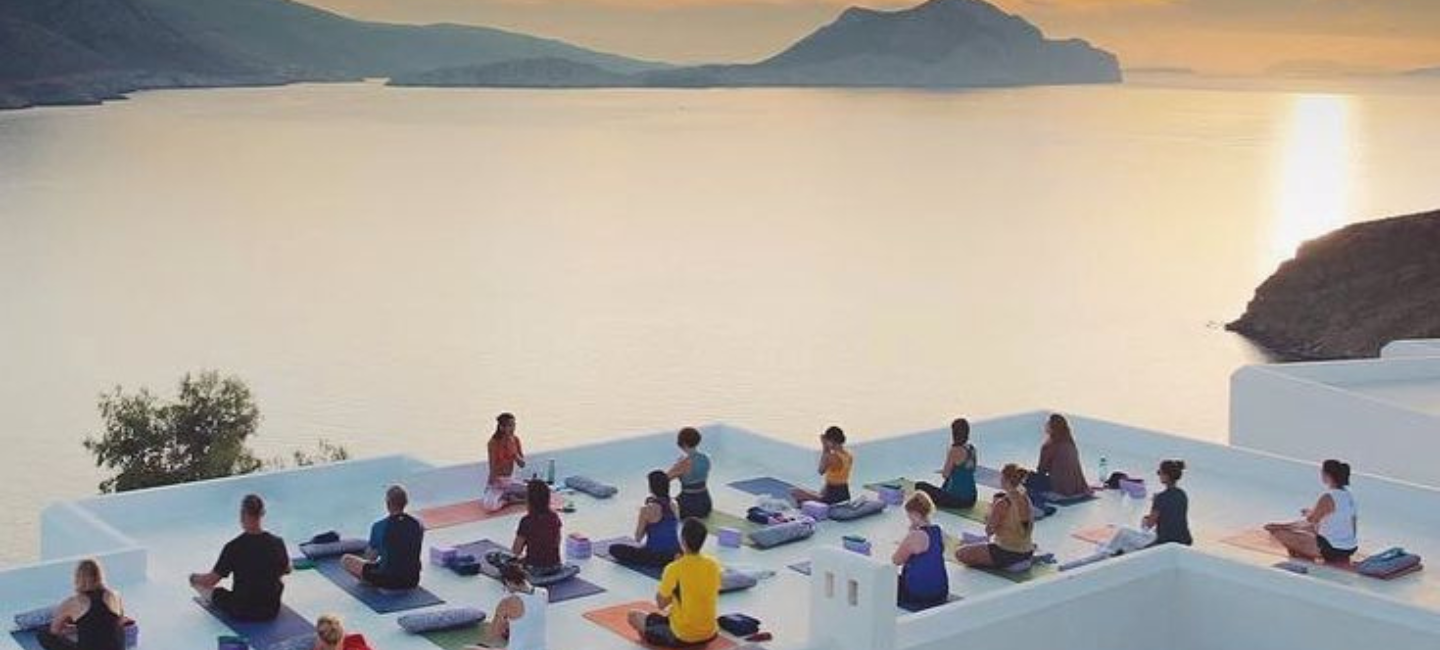The travel and hospitality industry is witnessing a paradigm shift, where the traditional concept of accommodation is evolving into a holistic experience centred around wellness. In an era marked by incessant stress and a constant barrage of digital distractions, individuals seek solace and rejuvenation through travel, yearning for experiences that nurture their physical, mental, and emotional well-being. This burgeoning demand has spurred the emergence of a new paradigm in hospitality: designing spaces and services that prioritize wellness at every turn. Here, we endeavour to explore the multifaceted approach to designing for wellness in travel and hospitality, examining the intricate interplay of architecture, interior design, amenities, services, technology integration, and community engagement. Through real-world examples, we will unravel the transformative potential of these holistic approaches for enhancing the guest experience.

Architecture and Interior Design:
Architecture serves as the canvas upon which the wellness experience in travel and hospitality unfolds. Thoughtfully designed structures have the power to evoke a profound sense of tranquility and connection with nature. Take, for instance, the Six Senses Yao Noi resort in Thailand, where architectural design seamlessly integrates with the pristine natural surroundings of lush tropical foliage and crystalline waters. Villas are meticulously crafted using sustainable materials, and their open-air layouts invite guests to bask in the beauty of the environment while indulging in luxurious accommodations. Moreover, interior design plays a pivotal role in cultivating a serene ambience conducive to relaxation. The Aman Tokyo hotel in Japan exemplifies this ethos with its Zen-inspired interiors, characterized by clean lines, natural materials, and panoramic city views. Such design elements not only elevate the aesthetic appeal but also foster a sense of inner peace and harmony, thereby enhancing the overall wellness experience for guests.

Amenities and Services:
In the pursuit of holistic wellness, hotels and resorts are reimagining traditional amenities and services to align with guests’ diverse needs and preferences. From spa facilities to healthy dining options, the modern traveller expects a comprehensive array of offerings that cater to their physical, mental, and emotional well-being. The Miraval Arizona Resort & Spa in Tucson, Arizona, stands as a beacon of excellence in this regard. Here, guests are treated to a wealth of wellness experiences, ranging from mindfulness workshops to outdoor activities and rejuvenating spa treatments. The resort’s commitment to holistic wellness is further underscored by its culinary offerings, which prioritize nutritious, locally sourced ingredients. By nurturing the body, mind, and spirit through tailored experiences and services, Miraval Arizona epitomizes the transformative potential of wellness-centric hospitality.

Technology Integration:
In an increasingly digitized world, technology has emerged as a powerful tool for enhancing the guest experience and supporting wellness initiatives. Wearable devices and mobile applications, in particular, offer a gateway to personalized wellness solutions, allowing guests to track their activity levels, monitor sleep patterns, and access on-demand fitness resources. The Westin Hotels & Resorts chain has embraced technology as a means of promoting wellness among guests. Through its partnership with Peloton, Westin Hotels provides access to cutting-edge exercise equipment and virtual fitness classes, empowering guests to maintain their wellness routines while on the go. Additionally, the brand’s “Sleep Well” program leverages technology to optimize the sleep environment, with amenities such as premium bedding, sleep-inducing lighting, and relaxation techniques tailored to individual preferences. By seamlessly integrating technology into the guest experience, Westin Hotels & Resorts exemplifies the synergy between innovation and wellness in hospitality.

Community Engagement:
Designing for wellness extends beyond physical spaces and services to encompass fostering a sense of community and connection among guests. Hotels and resorts have the opportunity to create immersive experiences that celebrate local culture, promote sustainability, and forge meaningful connections with guests and the surrounding community. The 1 Hotels brand exemplifies this ethos through its commitment to environmental stewardship and community integration. Each 1 Hotels property is meticulously designed with sustainability in mind, featuring eco-friendly materials, energy-efficient systems, and immersive experiences that celebrate the destination’s natural beauty and cultural heritage. Moreover, the brand actively engages with local artisans, farmers, and cultural organizations to offer guests authentic experiences that deepen their connection to the destination. By embracing community engagement as a cornerstone of its philosophy, 1 Hotels fosters a sense of belonging and connection that transcends the traditional boundaries of hospitality.

Designing for wellness in travel and hospitality requires a holistic approach that encompasses architecture, interior design, amenities, services, technology integration, and community engagement. By prioritizing guests’ physical, mental, and emotional well-being, hotels and resorts can create transformative experiences that resonate on a profound level. Real-world examples such as Six Senses Yao Noi, Miraval Arizona Resort & Spa, Westin Hotels & Resorts, and 1 Hotels showcase the diverse ways in which the industry is embracing wellness-centric design principles to elevate the guest experience. As the demand for wellness-focused travel continues to grow, the importance of thoughtful design and innovation in shaping these experiences cannot be overstated. By embracing a holistic approach to wellness, the travel and hospitality industry has the opportunity to redefine luxury and leave a lasting impact on individuals, communities, and the planet alike.


